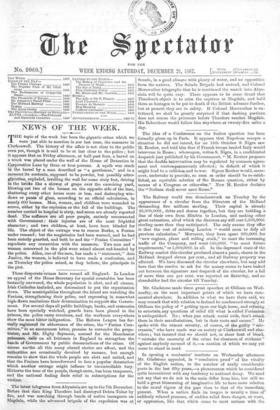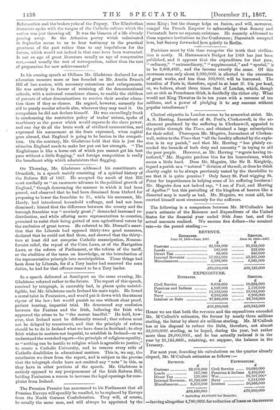In opening a mechanics' institute on Wednesday afternoon Mr. Gladstone
appealed, in " conclusive proof " of the vitality of the English nation, to the number of really considerable poets in the last fifty years,—a phenomenon which he considered quite inconsistent with any tendency to national decay. We need not say that we do not in the main differ from him, but still we hold a great blossoming of imaginative life to have more relation to the moral vigour of the past than to that of the immediate present. When a nation finds its tongue is usually a time of suddenly relaxed pressure, of sudden relief from danger, or want, or oppression, like that which came to most nations with the Reformation and the broken yoke of the Papacy. The Elizabethan literature spoke with the tongue of the Catholic culture which the nation was just throwing off. It was the blossom of a life already passing away. So the Athenian poetry which culminated in Sophocles seems to us to bear testimony to the practical greatness of the past rather than to any hopefulness for the future, which would not indeed in that case have been warranted. Is not an age of great literature usually an age of comparative rest,—and usually the rest of retrospection, rather than the rest of preparation for new achievements?







































 Previous page
Previous page